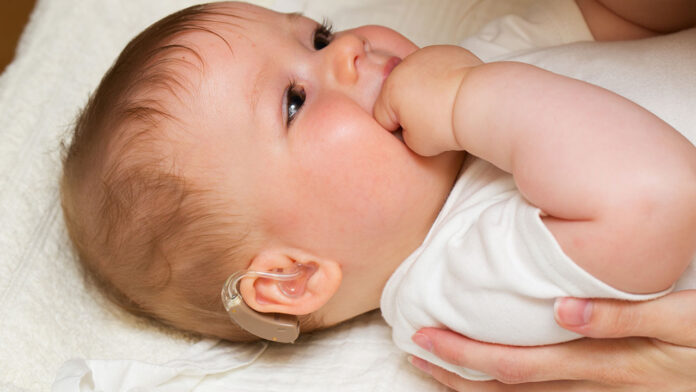Hospitals affiliated with the NHS plan to employ a quick test that can enable newborns to retain their hearing.
Commonly prescribed antibiotics can prove poisonous for certain newborns. The medications cause irreversible hearing problems by harming sensitive cells in the ear.
The test, which examines a baby’s DNA, can identify individuals who are at risk rapidly.
It implies that individuals can receive a different kind of antibiotic and avert a lifetime of hearing loss.
If a child gets a severe infection, gentamicin is the drug of choice. For the bulk of the population, it is both life-saving and secure.
It does have an uncommon side effect, though. A little mutation in the genetic sequence of about 1,250 newborns in England and Wales enables the antibiotics to bind more potently to the sensory neurons in their ears, where they become poisonous.
These microscopic hairs assist in converting noises into electrical impulses that the brain can comprehend. Hearing problems result if they are injured.
Although the side effects are well known, there has never been a test with a quick enough turnaround time. Delaying therapy would be risky, and because other medications have their negative effects and because of worries about antibiotic resistance, they are not utilized.
A sample obtained from the inside of the infant’s cheek is analysed using the new genedrive kit. In tests conducted at two newborn intensive care units in Manchester and Liverpool, it was able to identify babies who were at risk for hearing loss in just 26 minutes, and using it did not cause treatment to be delayed.
The test has been given provisional approval by the “National Institute for Health and Care Excellence (NICE),” which selects the medications and medical equipment the NHS uses.
NICE’s interim head of medical advances, Mark Chapman, stated: “Deafness has a massive effect on the child’s and their family’s quality of life.
In infants with this variation who require antibiotic treatment, having this test available to NHS personnel can reduce the chance of hearing loss.
He added that addressing hearing loss was expensive. It costs roughly £65,000 to install a pair of cochlear implants, which employ a microphone to transform sounds into electrical signals.
The NICE guidelines are frequently adopted more broadly yet still directly relate to England and Wales.
Before receiving final approval, a preliminary evaluation of the test will be conducted to see how well it performs in a variety of hospitals and what effect it has on antibiotic treatment use.

















